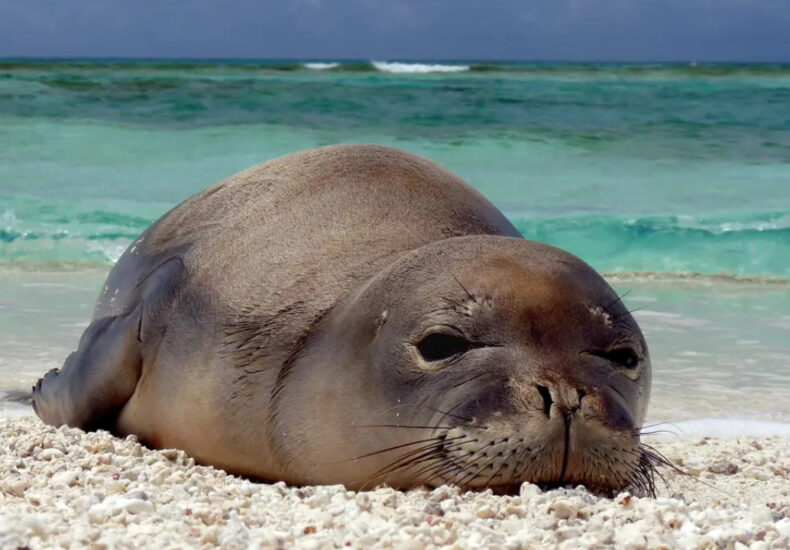
Unique Facts About Seals That Can Sleep While Diving
Fundacion Rapala – Seals are among the most fascinating marine mammals due to their unique ability to sleep while diving. This rare behavior has amazed scientists for decades, proving how highly adaptable seals are in their natural environment. Unlike humans, seals have evolved to balance rest with survival needs in the ocean. Their bodies are built to withstand deep dives and long periods without surfacing, which gives them a survival advantage. Sleeping underwater helps them conserve energy while staying safe from predators. This unusual adaptation also makes seals an essential subject of marine biology studies, as their sleeping habits reveal how animals can evolve to thrive in extreme conditions. Observing seals sleeping underwater is like witnessing a hidden survival strategy that shows just how remarkable nature can be.
“Also read: Chinese Scientists Develop Robot Capable of Carrying Human Pregnancy“
The Unique Sleep Mechanism of Seals
Researchers have discovered that seals use a specialized sleep pattern known as unihemispheric slow-wave sleep (USWS). In this state, only one half of the brain rests while the other half stays awake. This adaptation allows seals to remain aware of their surroundings even when asleep. They can continue to control their breathing and sense possible predators nearby. Unlike humans who completely shut down both hemispheres of the brain during sleep, seals balance rest and alertness simultaneously. This split-brain sleep system is not only efficient but also a vital survival tool in the ocean. Without it, seals would be highly vulnerable while submerged. The fact that their nervous system developed this mechanism highlights the complexity of marine mammal evolution and the intelligence behind their survival strategies.
Extraordinary Physiological Adaptations
In addition to their unique brain function, seals also have impressive physiological adaptations that allow them to sleep underwater. Their bodies can hold their breath for several minutes, far longer than humans. When diving, their heart rate slows dramatically, reducing oxygen consumption. This phenomenon, known as the “dive reflex,” helps conserve vital energy reserves. It enables them to remain submerged while resting without constantly resurfacing for air. These adaptations also assist in hunting, as seals can patiently wait for prey without depleting their energy. By slowing their metabolism, seals ensure that every dive is as efficient as possible. This combination of breath control, reduced heart rate, and energy management demonstrates the remarkable resilience of seals in harsh marine environments.
The Benefits of Sleeping Underwater
Sleeping while diving offers seals several important advantages for survival. Firstly, it allows them to rest without needing to surface frequently, which conserves energy. Secondly, it provides a level of safety against land predators, such as polar bears, by avoiding long rests onshore. Additionally, remaining in the water keeps them close to food sources, making it easier to resume hunting after a period of rest. These benefits show that sleeping underwater is not just a curious behavior but also a powerful evolutionary strategy. Seals can maintain their daily energy balance while minimizing risks from threats both on land and in the sea. For marine biologists, this behavior is a perfect example of how animals adapt to complex ecosystems in order to survive and thrive.
“Read more: Surprising China Now Follows America in Embracing Stablecoin“
Comparison with Other Marine Animals
When compared to other marine mammals, seals display a truly unique sleeping adaptation. Dolphins, for example, also use unihemispheric slow-wave sleep but tend to rest closer to the surface. Whales often float near the surface for extended periods when sleeping, making them more visible and vulnerable. Seals, on the other hand, are capable of diving deeper and resting underwater while staying relatively hidden. This difference demonstrates the diversity of survival strategies in the marine world. Each species has evolved distinct methods suited to its habitat and lifestyle. Seals’ ability to rest while submerged makes them stand out as one of the most versatile and adaptive mammals in the ocean. Such comparisons reveal how evolution tailors behavior and biology to specific environmental demands.
Scientific Research Revealing the Secret
The phenomenon of seals sleeping underwater has been studied extensively using advanced technologies. Scientists employ brain monitors, heart rate trackers, and respiratory sensors to understand their unique sleep cycles. Studies have shown that underwater sleep is not just an occasional behavior but a critical part of their biology. It ensures energy conservation, predator awareness, and proper rest. Research on seals also provides valuable insights for human science. For example, studying how seals manage oxygen and sleep patterns could inspire innovations in diving technology, medical science, and even astronaut training. By learning from seals, humans can improve endurance techniques in extreme conditions. This demonstrates how observing wildlife not only deepens ecological knowledge but also inspires breakthroughs in science and technology.
Why Seals Remain an Extraordinary Species
Ultimately, the fact that seals can sleep while diving highlights their incredible adaptability. This unique behavior is not simply a natural curiosity but the result of millions of years of evolution. It reflects the perfect balance between physiology and behavior required for survival in the ocean. For researchers, seal remain a valuable subject for ongoing studies in marine biology and neurology. For the public, their abilities spark wonder and admiration, showing just how extraordinary marine life can be. Their sleeping behavior proves that survival strategies can be both practical and astonishingly creative. Seal stand as a reminder that the natural world still holds many secrets waiting to be uncovered, each one more fascinating than the last.